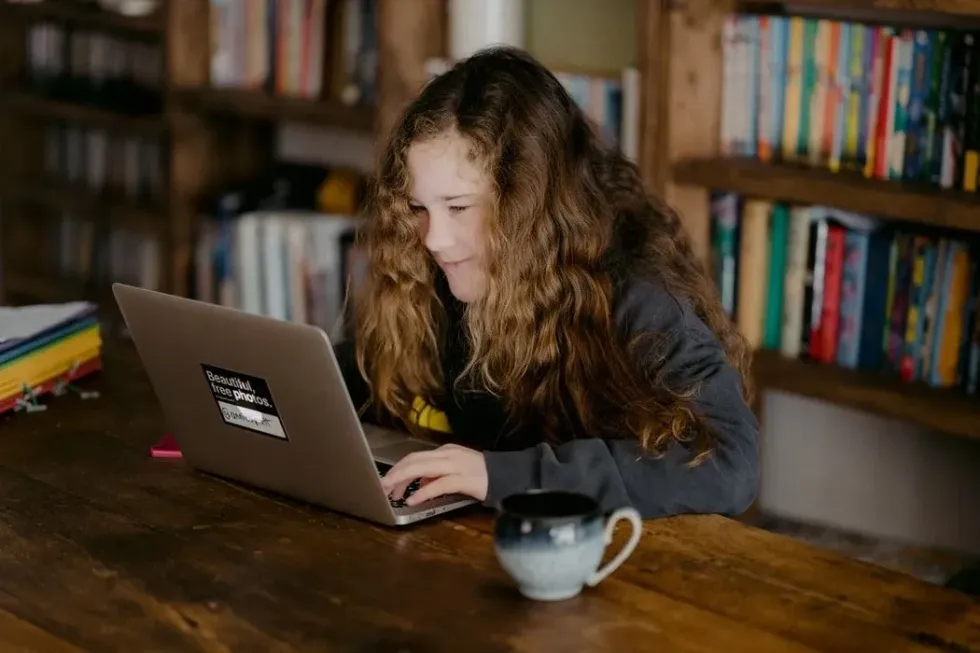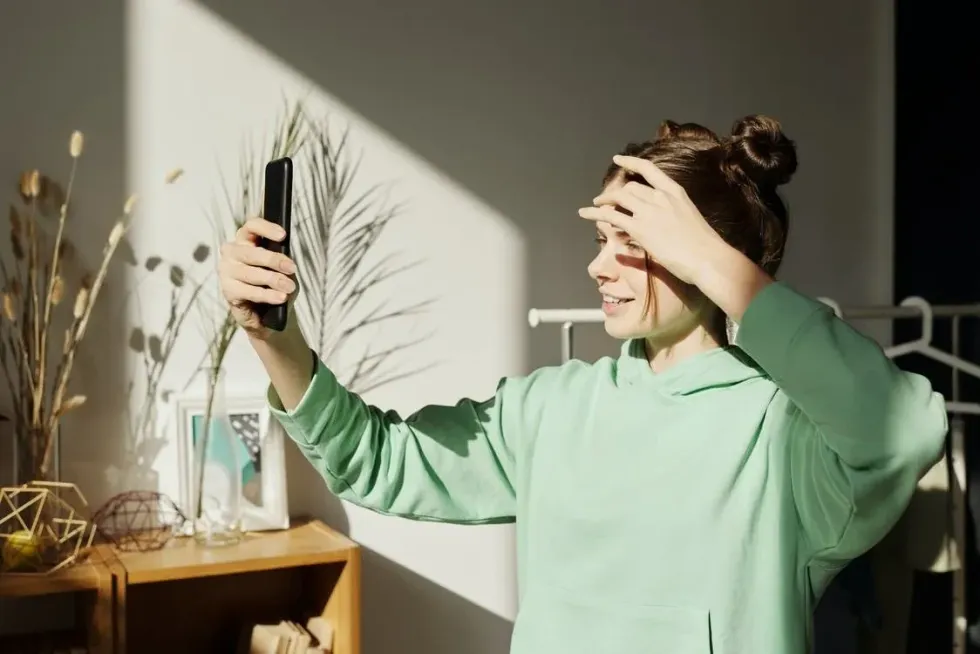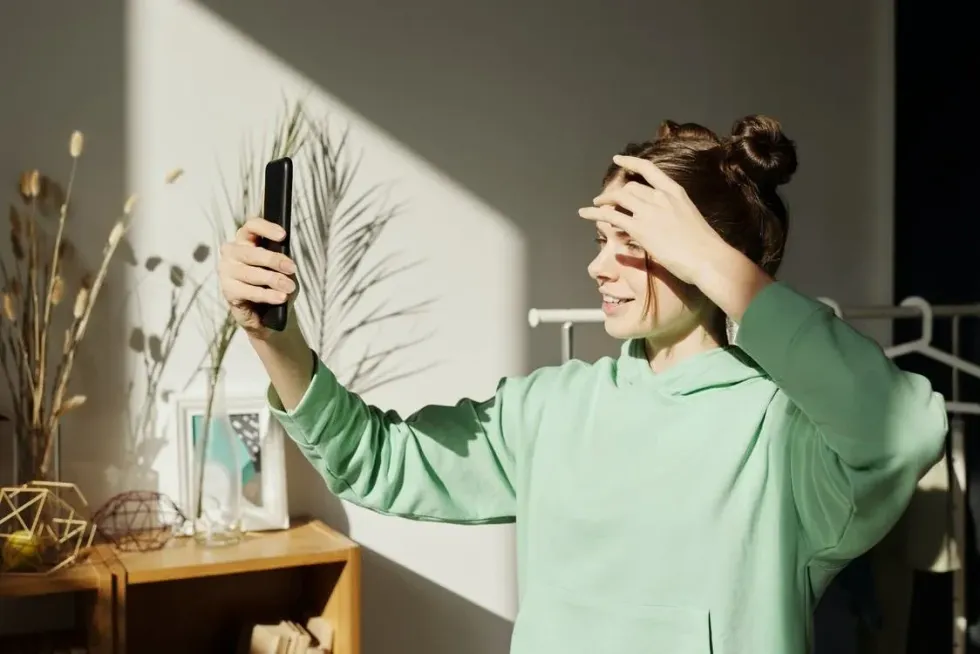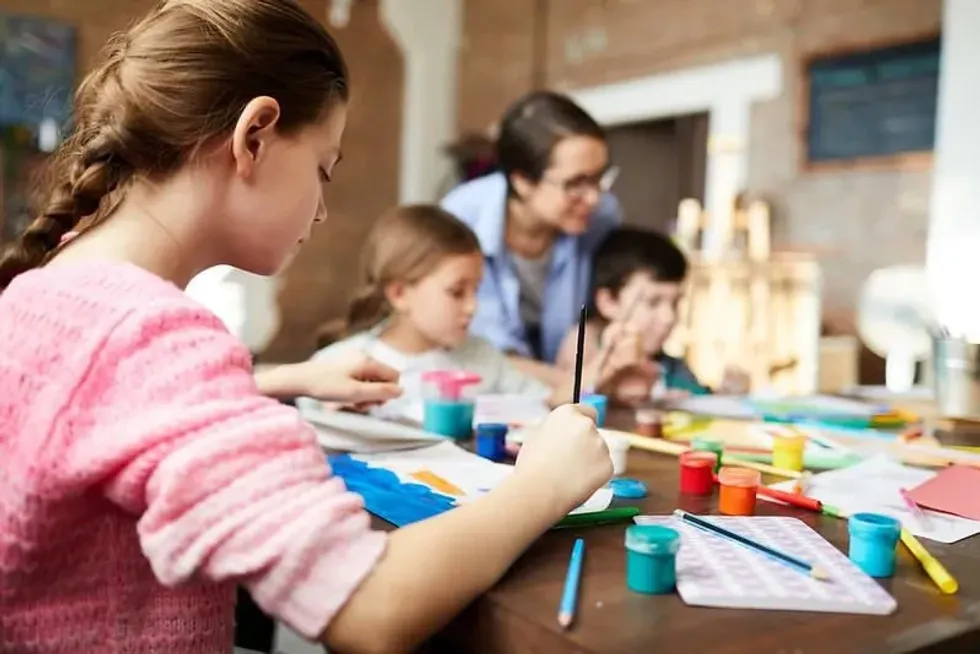Social Media And Self Esteem: How To Help Your Teenager

Content
- How Does Social Media Affect Mental Health
- How Does Social Media Affect Body Confidence
- How Does Social Media Affect Teens Specifically
- Helping Your Teen Develop A Healthy Relationship With Social Media
- How does social media affect teenagers' self-esteem?
- What are the signs that social media is harming my teenager's self-esteem?
- How can I talk to my teenager about the impact of social media on their self-esteem?
- Should I limit my teenager's social media use to protect their self-esteem?
On average, teens spend between six and nine hours online every single day.
Social media offers teens a space that's available 24/7 to share thoughts and ideas away from their parents. They can use it to create strong peer relationships and boost self-esteem, and it gives your teen the opportunity to forge their identity outside of school or home.
As we're sure you're aware, there is, unfortunately, a much darker side to social networking sites that is potentially harmful to our teens. Edited imagery and an endless stream of perfect lives breed social comparison and unrealistic expectations.
The self-esteem of our teens can plummet, and depression, anxiety, and body dysmorphia are all very real risks that social media use can pose.
Today it's almost inevitable that our teens are going to be using social media sites. So how do we, as parents, offer support and guidance to our teens as they navigate the online sphere?
From tips on what to avoid, to how to manage your teen's time spent online, we've got a few ideas that might help you to deal with the ups and downs your teen will inevitably face on the web.
How Does Social Media Affect Mental Health
Social media can definitely have a positive impact on teens, as they find their online tribe and use their social network to establish deeper connections with their peers. But there are also very real negative impacts of social media use, like the links between social media and self-esteem issues in teens.
In a study by Common Sense, it was found that 51% of teens check their social media sites every day. With social media available all the time to our teens, it is no surprise that it is causing a serious effect on their mental health.
On the positive side of the scale, social media sites can broaden the social spheres of teens, especially teens who struggle to make connections in their daily life. Social networks can also teach teens technical skills that will help them in their later working life.
However, the lack of self-regulating and increasing time on social media sites can also have serious negative effects.
Research has linked social media with depressive symptoms. A passing comment in the classroom will usually be forgotten by the next period, but the things that teens say or post online are immortalized and can haunt them for years to come.
A rise in cyberbullyingmeans that anxiety around what you say and do is heightened, if teens say the wrong thing it might not be forgotten by peers as easily, and could even go viral.
With social network sites taken up by celebrities and influencers who often have whole teams of editors, photographers, and media experts, it's no wonder teens are feeling like expectations are unrealistic. There is building pressure for teens to portray perfect images of a perfect lifestyle, and this can add a lot of anxiety to your teen's daily life.
The green-eyed monster of jealousy is one of social media's biggest impacts on teens. Only seeing the best parts of people's lives on Facebook, Instagram, and more puts unrealistic expectations on your teen's own life.
Social comparisons might lead your teen to believe that everyone else is happier than them, which can have a negative impact on their mental health.
How teens portray themselves on social media becomes interwoven with their self-identity in the real world. This means that social media and anxiety have become closely linked.
Comparison on Facebook, Instagram, and TikTok often corresponds directly to your teen's self-esteem. The amount of likes, comments, and social interaction your teen experiences impacts their sense of self-worth, and can cause severe anxiety in a lot of cases.
How Does Social Media Affect Body Confidence
Social networking sites including Instagram and Facebook breed unrealistic ideas of what people look like, so it's only natural to worry that your teen's self-esteem will be affected by the social comparison.
There are ways of using social media to celebrate individual differences, and it's important to make sure that your child has a positive relationship with their body while using social media.
Gone are the days where our disposable camera holiday snaps were all we had to show our friends.
Now editing apps like FaceTune are widely available for teens to doctor every aspect of their face and body to create their idea of a "perfect" post for Facebook or Instagram. The danger of seeing these kinds of edited photos every day is that our teens forget what a normal person looks like.
Instead of only having their peers to compare themselves to like past generations, teens can compare the way they look to a limitless stream of images of people from all over the world, most of them edited to look different to how they are naturally.
Research has shown a number of links between social media use and low self-esteem, and a rise in body dysmorphia, anorexia, and bulimia in teens. When you are comparing yourself to fake realities, it can be very hard to understand when to draw the line and what a "normal" body actually looks like.
This kind of social comparison is breeding a culture of #fitspo and #thinspo that promotes eating disorders and body dysmorphia.
When your teen looks in the mirror and doesn't look like the altered face filter they've added to their recent post, they then have a sense that they don't look good enough, which leads to more dangerous negative and unhealthy thought patterns.
The self-esteem of our teens is even linked to the amount of likes and comments they receive on their photos and posts.
When the number keeps climbing, the dopamine hit that they receive from 10 likes quickly diminishes, and they want 50 likes, and then 100, and where does it end?
When the impact of social media use is taking such a huge role in our teens' self-esteem and sense of self-worth, it is important for parents to remind teens that there are more important barometers of self than their online social comparisons.
It is more important than ever for us to help boost teens' self-esteem with self-evaluation that is not linked to their online presence. Practicing gratitude and focussing on the things that they are doing instead of the way that they look are good ways to help combat the negative social media effects.
How Does Social Media Affect Teens Specifically

There are impacts of social media use that affect people of all ages, but research has shown that some negative effects are typically much more prominent in teens. Learning about the differences between how social media might impact adults versus teens allows us to understand the psychology of our teens' behavior more clearly.
As parents, it is easy to get fed up with how much time our teens are spending on their phones and computers, and it can seem crazy to us that they are happy to waste their days sitting around scrolling when there is so much life to be lived.
Figuring out your sense of self is hugely important, and social media offers teens a platform to test the waters and work out how they want to be seen.
It is important for us to remember that our teens are growing and developing and looking for spaces where they can try out different identities without the watchful eye of parents and guardians, or even friends, so it can actually be a very rewarding place for them.
On the flip side, social media use can have much stronger negative effects on teens' self-esteem and sense of self.
When you don't yet have a strong understanding of your identity, and you receive a negative comment, it can feel much more personally hurtful than it can to adults who have had the time and life experiences to become more comfortable in their identity and sense of self.
As adults, it matters a lot less if we're accepted by our peers. most of us have given up dreams of becoming celebrities and social comparison tends to be much less important in our day-to-day lives.
For teens, it's important to remember that being accepted by their peer group can feel like the most important thing in the world, which means social media becomes a much more important tool.
Teens have also not had as much experience socializing in real life with friends and peers, so when social media use is their main method of communication, it can cause challenges in communicating further down the line in work and even relationships.
This is why it is so important for parents to encourage socialization in person as well as social media use, so teens can feel comfortable switching off technology and engaging with new people.
Helping Your Teen Develop A Healthy Relationship With Social Media

It's pretty inevitable that our teens are going to use social media sites in some capacity, so it's important to encourage those interactions to be as healthy as possible. These tips will help your teen manage self-doubt and social media anxiety and create a healthy relationship with their life online.
1. Encourage your teen to do a social media clear-out.
Take a couple of hours to sit with them and delete any accounts that they follow that aren't guiding them towards a healthier, happier life. Say goodbye to models promoting weight loss drinks, gossip accounts, and designer shopping sprees, and welcome in a host of accounts featuring body positivity, hobbies, and mental health support.
It will dramatically boost your teen's self-esteem to stop seeing so many false pictures.
2. A social psychology study by Computers in Human Behavior found that depression is linked with the use of multiple social networks over time spent online. Your teen might find it helpful to stick to one social site each day, to reduce any negative impacts of social media.
3. Take social media breaks with your teen. Encourage one day a week or an hour a day as phone-free time, and make a conscious effort to spend time as a family. Regular breaks will allow your teen to enjoy time outside of social media, and might even be helpful for you too.
4. Educate yourself on social media safety. If you don't know how to keep your child safe while they use social networking sites, then it can be very hard to steer them away from dangers. Staying up to date on social media and the effects it has will give you the knowledge to help from afar.
5. One of the most important things we can do as parents is to make sure that our teens know we are there to support them.
If we can try to avoid constant negative talk about social media, and let our teens know we're always around to listen to problems, it means they are more likely to keep us in the loop if anything is bothering them.
6. Encourage relationships in real life. The better your teen's balance is between their online and offline social lives, the easier it will be for them to cope with any online dramas.
7. Keep talking to your teen about social media.
Often teens think that we're totally out of touch and just wouldn't understand any of their issues that come with their life online. It's important to keep a dialogue open with your teen about any impacts their social media use might have, to help their awareness on why things feel how they do.
8. Start talking about social media earlier than you think you need to.
It can be tempting to avoid talking about life online with preteens and kids because we don't want them to start becoming absorbed into that world. In reality, it's important to educate our kids early on the risks involved in sharing online, so we can do our best to keep them safe from any mistakes.
9. Know the role of your teen's school. Schools have differing policies on social media and phone use, and it's a good idea to get to know what your teen's school is doing to keep your teen safe during the hours they are on their watch.
10. Set privacy settings for your teen. Making accounts on social media sites like Facebook and Instagram private means that you limit who can see your teen's posts. Especially for younger teens, this creates a much safer space for them to explore the online sphere.
11. Give your teen some tools to help with low self-esteem. There are some great psychology books and self-help guides that might make your teen feel less alone if they are feeling self-conscious, and tools like gratitude journaling, positive self-talk, and meditation may help them cope with any overwhelming thoughts or feelings they have.
If you found this article about social media and low self-esteem helpful, then why not take a look at our tips for [good child syndrome], or how old do you have to be to babysit?
How does social media affect teenagers' self-esteem?
Social media can negatively impact teenagers' self-esteem by promoting unrealistic beauty standards, triggering feelings of inadequacy, and exposing them to cyberbullying. However, it can also boost self-esteem by providing a platform for self-expression and connecting with supportive communities.
What are the signs that social media is harming my teenager's self-esteem?
Some signs include constantly comparing themselves to others, obsessing over likes and followers, experiencing mood swings after using social media, engaging in negative self-talk, and withdrawing from real-life social interactions.
How can I talk to my teenager about the impact of social media on their self-esteem?
Start an open, non-judgmental conversation about their social media experiences. Share your own concerns and ask about their feelings. Encourage them to think critically about the content they consume and remind them that social media often presents a curated, unrealistic version of reality.
Should I limit my teenager's social media use to protect their self-esteem?
While setting reasonable limits on screen time is important, completely banning social media may not be the best approach. Instead, help your teenager develop healthy habits and coping strategies, such as taking regular breaks, unfollowing accounts that make them feel bad, and engaging in offline activities they enjoy.
We Want Your Photos!
More for You
See All
Bachelor of Arts specializing in French with Film Studies, Bachelor of Arts (Year Abroad) specializing in Literature, History, Language, Media, and Art

Georgia StoneBachelor of Arts specializing in French with Film Studies, Bachelor of Arts (Year Abroad) specializing in Literature, History, Language, Media, and Art
Georgia is an experienced Content Manager with a degree in French and Film Studies from King's College London and Bachelors degree from Université Paris-Sorbonne. Her passion for exploring the world and experiencing different cultures was sparked during her childhood in Switzerland and her year abroad in Paris. In her spare time, Georgia enjoys using London's excellent travel connections to explore further afield.
Bachelor of Science specializing in Human Anatomy

Joan AgieBachelor of Science specializing in Human Anatomy
With 3+ years of research and content writing experience across several niches, especially on education, technology, and business topics. Joan holds a Bachelor’s degree in Human Anatomy from the Federal University of Technology, Akure, Nigeria, and has worked as a researcher and writer for organizations across Nigeria, the US, the UK, and Germany. Joan enjoys meditation, watching movies, and learning new languages in her free time.
Disclaimer
1) Kidadl is independent and to make our service free to you the reader we are supported by advertising. We hope you love our recommendations for products and services! What we suggest is selected independently by the Kidadl team. If you purchase using the Buy Now button we may earn a small commission. This does not influence our choices. Prices are correct and items are available at the time the article was published but we cannot guarantee that on the time of reading. Please note that Kidadl is a participant in the Amazon Services LLC Associates Program, an affiliate advertising program designed to provide a means for sites to earn advertising fees by advertising and linking to Amazon. We also link to other websites, but are not responsible for their content.
2) At Kidadl, we strive to recommend the very best activities and events. We will always aim to give you accurate information at the date of publication - however, information does change, so it’s important you do your own research, double-check and make the decision that is right for your family. We recognise that not all activities and ideas are appropriate for all children and families or in all circumstances. Our recommended activities are based on age but these are a guide. We recommend that these ideas are used as inspiration, that ideas are undertaken with appropriate adult supervision, and that each adult uses their own discretion and knowledge of their children to consider the safety and suitability. Kidadl cannot accept liability for the execution of these ideas, and parental supervision is advised at all times, as safety is paramount. Anyone using the information provided by Kidadl does so at their own risk and we can not accept liability if things go wrong.
3) Because we are an educational resource, we have quotes and facts about a range of historical and modern figures. We do not endorse the actions of or rhetoric of all the people included in these collections, but we think they are important for growing minds to learn about under the guidance of parents or guardians.







